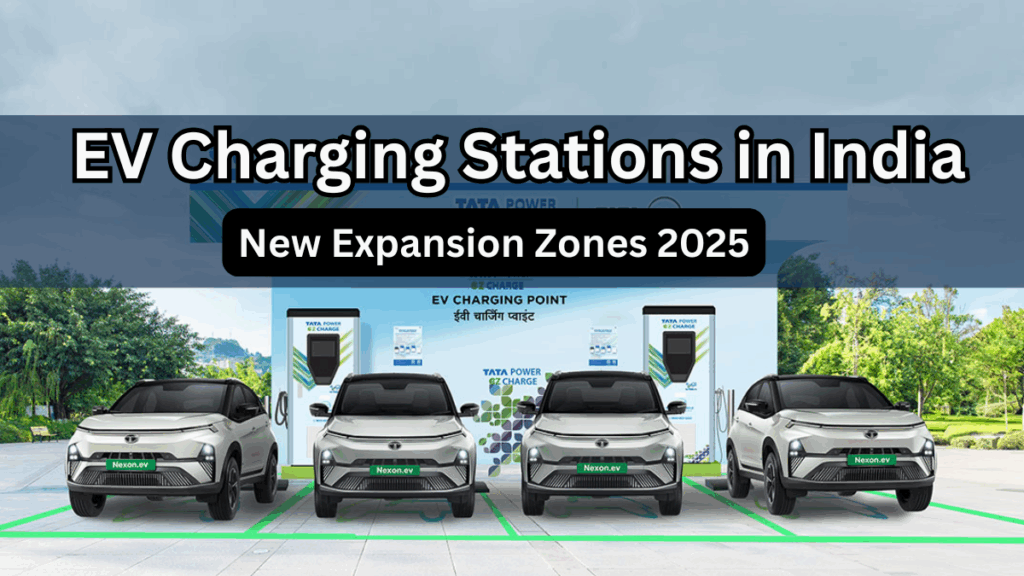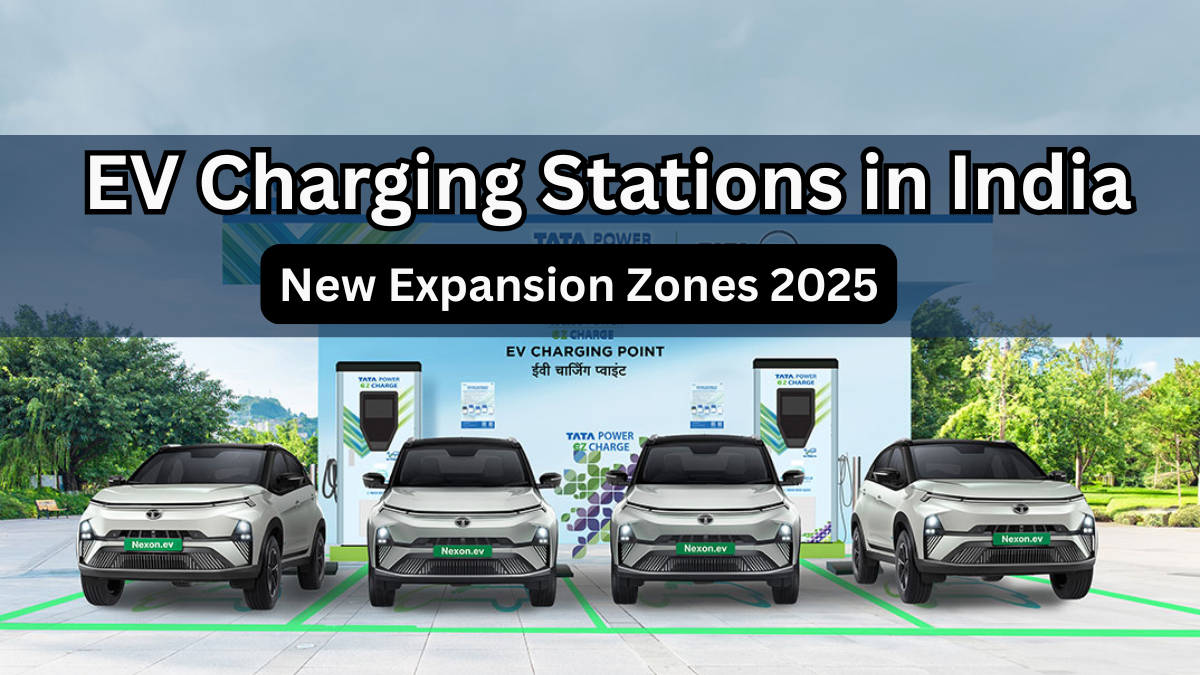India is accelerating its journey towards a greener future, and the expansion of EV charging stations is at the heart of this transformation. As electric vehicles (EVs) become more mainstream, the need for accessible and efficient charging infrastructure has never been more critical. Let’s explore the latest developments in EV charging infrastructure across the country.

EV Charging Stations in India 2025: A Snapshot
India’s EV landscape is evolving rapidly. Here’s an overview of the current state:
| Metric | 2025 Status |
|---|---|
| Operational Charging Stations | Over 16,000 nationwide |
| Fast-Charging Points | Approximately 12,000 |
| AC Charging Points | Around 20,000 |
| Projected EVs on Road by 2030 | 50 million |
Urban Expansion: Tier 1 Cities Leading the Charge
Metropolitan areas continue to be the focal points for EV infrastructure development:
-
Delhi–Mumbai Expressway: Equipped with charging stations at 93 locations, facilitating long-distance EV travel.
-
CHARGE ZONE Network: India’s largest EV charging network, boasting 13,500 stations and serving over 8,000 daily users.
Tier 2 & 3 Cities: A Green Revolution in the Making
The focus is shifting towards smaller cities, ensuring inclusive EV adoption:
-
96% Growth in Charging Infrastructure: Significant expansion in tier 2 and 3 cities, with over half of the fast-charging stations located near national highways.
-
Surat’s Green Vehicle Policy-2025: Introduction of incentives like tax waivers and reserved parking, alongside plans for 450 charging stations.
Highway Connectivity: Bridging the Gaps
Ensuring seamless EV travel across the country:
-
Charging Stations Every 25 km: The government’s initiative to set up charging stations along highways to support inter-city EV travel.
-
Battery Swapping Stations: Deployment of swap stations for two-wheelers and e-rickshaws, enhancing convenience for short-distance commuters.
Workplace & Residential Integration
Making EV charging a part of daily life:
-
Office Complexes & Malls: Installation of charging points in commercial spaces to cater to the growing number of EV users.
-
Residential Areas: Encouraging the setup of home charging stations to promote EV adoption among homeowners.
Technological Advancements: The Future of Charging
Innovations shaping the EV charging experience:
-
High-Speed DC Chargers: Deployment of 50–150 kW chargers along expressways for rapid charging.
-
Interoperable Connectors: Standardization efforts to ensure compatibility across various EV brands.
Government Initiatives & Policy Support
The backbone of India’s EV infrastructure growth:
-
PM E-DRIVE Scheme: Allocation of ₹2,000 crore to establish 22,100 public charging stations by March 2026.
-
Unified Standards: Implementation of standardized charging protocols to ensure seamless user experience.
FAQs
1. How many EV charging stations are operational in India as of 2025?
India has over 16,000 operational EV charging stations, with plans for significant expansion in the coming years.
2. What incentives are available for EV users in India?
Incentives include tax waivers, reserved parking, and exemptions from environmental charges, as seen in Surat’s Green Vehicle Policy-2025.
3. Are there charging stations available on highways?
Yes, the government aims to set up charging stations every 25 km along highways to support inter-city EV travel.
4. How is the government supporting EV infrastructure development?
Through initiatives like the PM E-DRIVE Scheme, which allocates funds for establishing public charging stations, and by implementing standardized charging protocols.
Conclusion
The expansion of EV charging stations in India is not just about infrastructure; it’s about fostering a sustainable future. With concerted efforts from the government, private sector, and communities, India is well on its way to becoming a global leader in electric mobility. Whether you’re in a bustling metro or a growing town, the green revolution is charging ahead, and it’s time to plug in.
Click here to learn more
